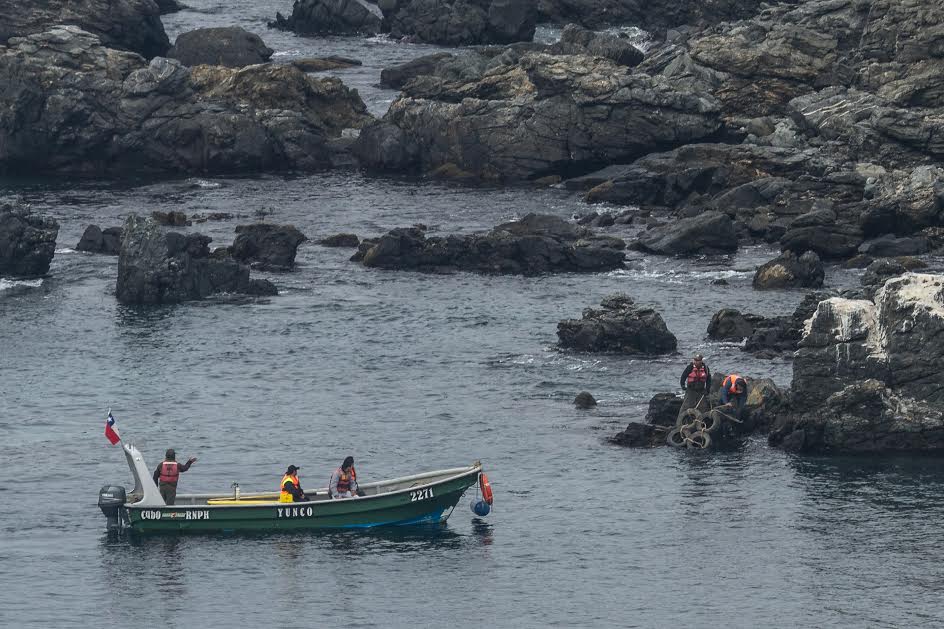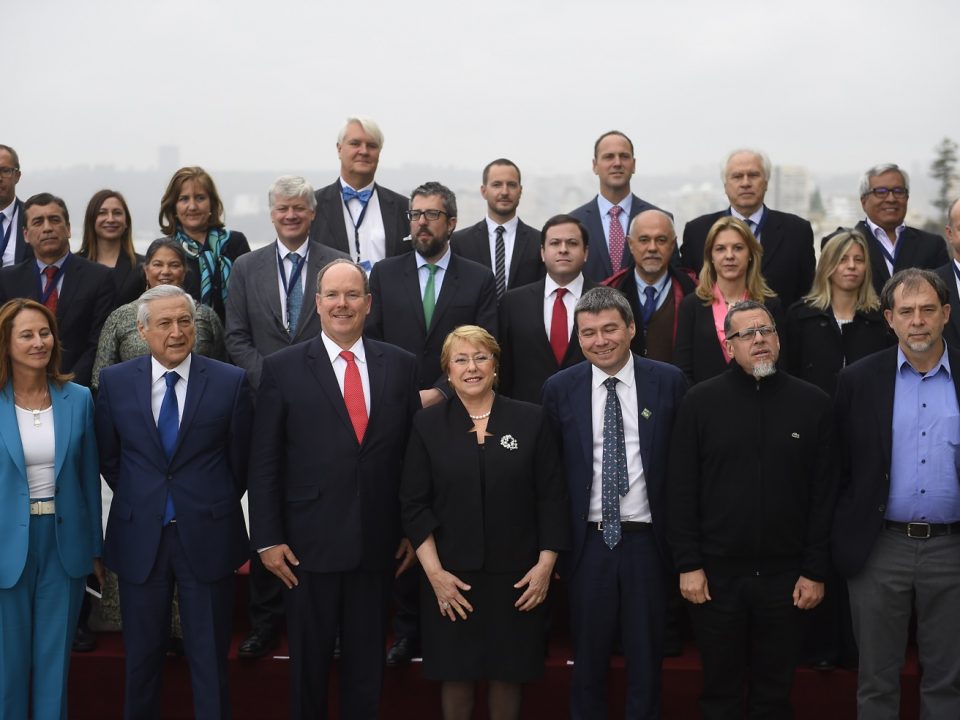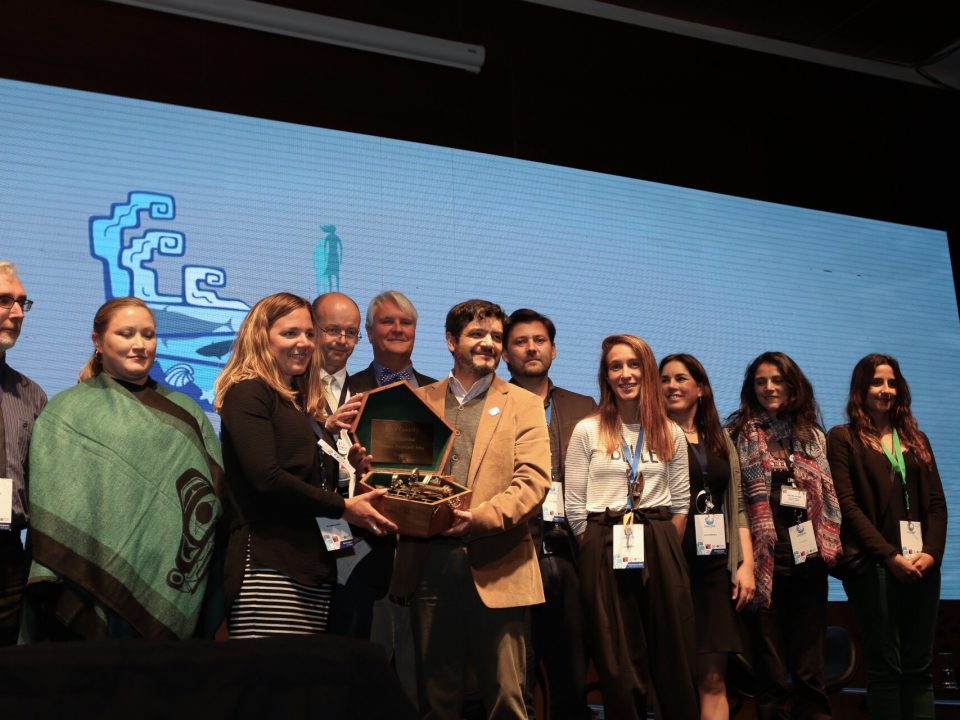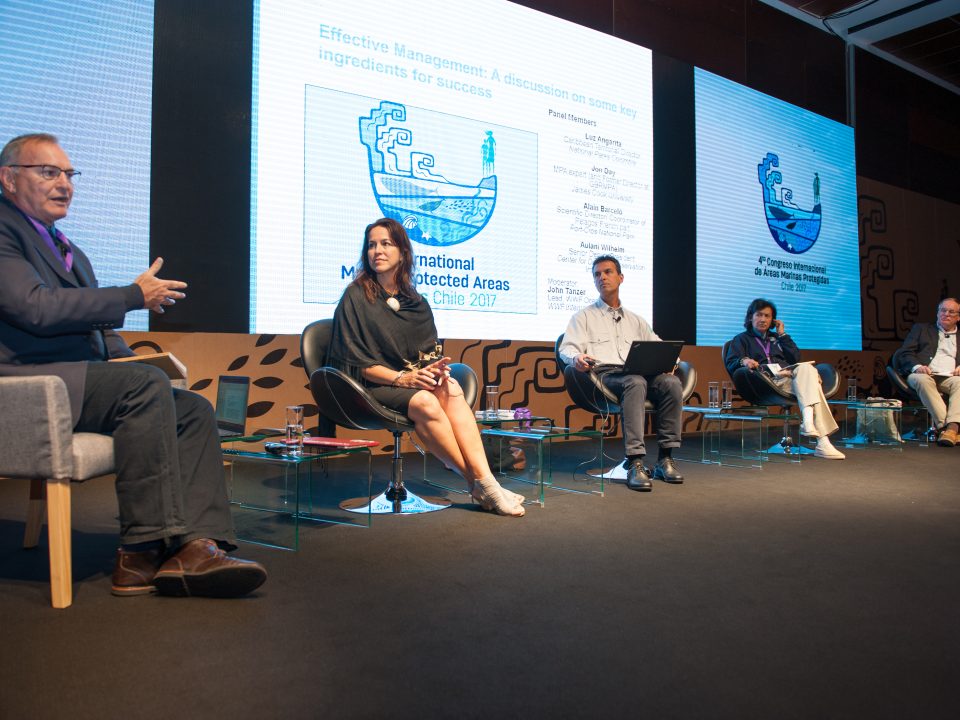-
IMPAC 4 is the most relevant event concerning the oceans, globally. It will bring together scientists, practitioners, community representatives and authorities from around the world, from September 4-8 in La Serena and Coquimbo. The Congress will conclude on September 9 with a High-Level Meeting with the signature of a “call for action for the oceans”, in the city of Viña del Mar.
-
The meeting is organized by the Ministry of the Environment of Chile and the International Union for Conservation of Nature (IUCN). It will feature the presence of the Prince of Monaco and prominent scientists such as Yolanda Kakabadse, President of WWF International, and Sylvia Earle, renowned oceanographer of the Blue Alliance.
Hosted by the Government of Chile in La Serena-Coquimbo from September 4-8, 2017, The 4th International Marine Protected Areas Congress (IMPAC 4) will focus on relationship between Marine Protected Areas (MPAs) and global change, the importance of close ties between communities and ocean conservation, and the review of successful marine management strategies.
The meeting is expected to feature more than 1000 participants from all corners of the planet, -including representatives from the scientific world, local communities, practitioners and authorities – with the shared aim of strengthening best practices in the management of MPAs and thus achieving the effective conservation of their biodiversity. “With this event, and the legacy of both marine and terrestrial protected areas that Chile has cemented under the administration of President Michelle Bachelet, our country is taking the lead in protecting our oceans worldwide”, said the Minister of Environment and Chairman of IMPAC 4, Marcelo Mena.
During IMPAC 4, delegations will review the progress achieved by signatory countries of the Convention on Biological diversity (CBD) in protecting 10% of their marine and coastal ecosystems by year 2020 (Aichi target 11) through MPAs. They will also analyze ways to combine the management of MPAs with the progress of the United Nations Sustainable Development Goal 14 “to conserve and use in a sustainable way the oceans, seas and marine resources for sustainable development”. These issues will also be addressed in depth during the High-Level Meeting on Saturday 9th in Viña del Mar, headed by decision-makers at the global level, Ministers of the Environment of several countries, the IUCN / WCPA and the Agency for Marine Protected Areas, among others.
With the motto “Bringing the people and ocean together” IMPAC 4 will highlight the intricate nature of the ocean-human relationship and the benefits of the ecosystem services that marine protected areas provide to millions of people. “People are at the center of management measures and the protection of ecosystems and the environment. Having successful MPAs ensures that biodiversity conservation effectively projects benefits towards people”, adds Minister Mena.
The Congress is structured by panels of discussion, workshops, scientific coffees and others. It will feature side events with the community, such as the “Cortos Frente al Mar” Film Festival; activities regarding art and the environment “Cubo Arte”; and field trips to the protected marine areas of the region, among other activities.
“Through IMPAC 4, we are hoping to involve the leaders and be a source of inspiration for young people, connecting them with relevant MPAs’ management actors. These areas are a successful system for the protection of unique species of our seas and coasts”, Mena said.
Along with the presence of the Prince of Monaco, the keyspeakers include, among others, the President of WWF International, Yolanda Kakabadse; the renowned oceanographer from Blue Alliance, Sylvia Earle; co-President of the Bertarelli Foundation, Dona Bertarelli; the Chief Officer of the International Conservation Unit of The PEW Charitable Trust, Maximiliano Bello; the Principal Advisor on Marine Science and Conservation of IUCN, Dan Laffoley, as well as scientists from Oceana, the National Marine Sanctuary Foundation, WCS, NOAA, and various universities around the world.
Previous versions of the IMPAC were held in Geelong, Australia (2005), Washington, D.C., USA (2009), and Marseille, France (2013). IMPAC 4 Chile 2017 is organized by the Ministry of the Environment of Chile and the International Union for Conservation of Nature (IUCN). Various public services are also participating, including the Undersecretariat of Fisheries and Aquaculture (SUBPESCA); the National Fisheries and Aquaculture Service (SERNAPESCA); the General Directorate of Maritime and Merchant Marine (DIRECTEMAR); the Undersecretariat for the Armed Forces (SSFFAA); the Ministry of Foreign Affairs of Chile, and the Institute for Fisheries Promotion (IFOP).
IMPAC 4 is sponsored by the Regional Government of the Region of Coquimbo; The PEW Charitable Trusts; Fondation Bertarelli; Waitt Foundation; Packard Foundation; Mar Adentro Foundation; FAO; L’Agence Française pour la Biodiversité; Wildlife World Fund (WWF); Meri Foundation, and Parks Canada. It is also supported by the most important conservation organizations, and is supported by The National Geographic and Pristine Seas.
*****
During the last years Chile has been noteworthy for its great commitment in the protection of pristine and highly endemic marine habitats. It is currently the fifth country with the largest marine protected area, following the recent incorporation of 13,190 km2 in the Juan Fernández Archipelago and 100,000 km2 in the area of Cabo de Hornos and Diego Ramírez Islands. With this, Chile completes more than 1 million square kilometers of protection in its sea, becoming a world leader in marine conservation.




